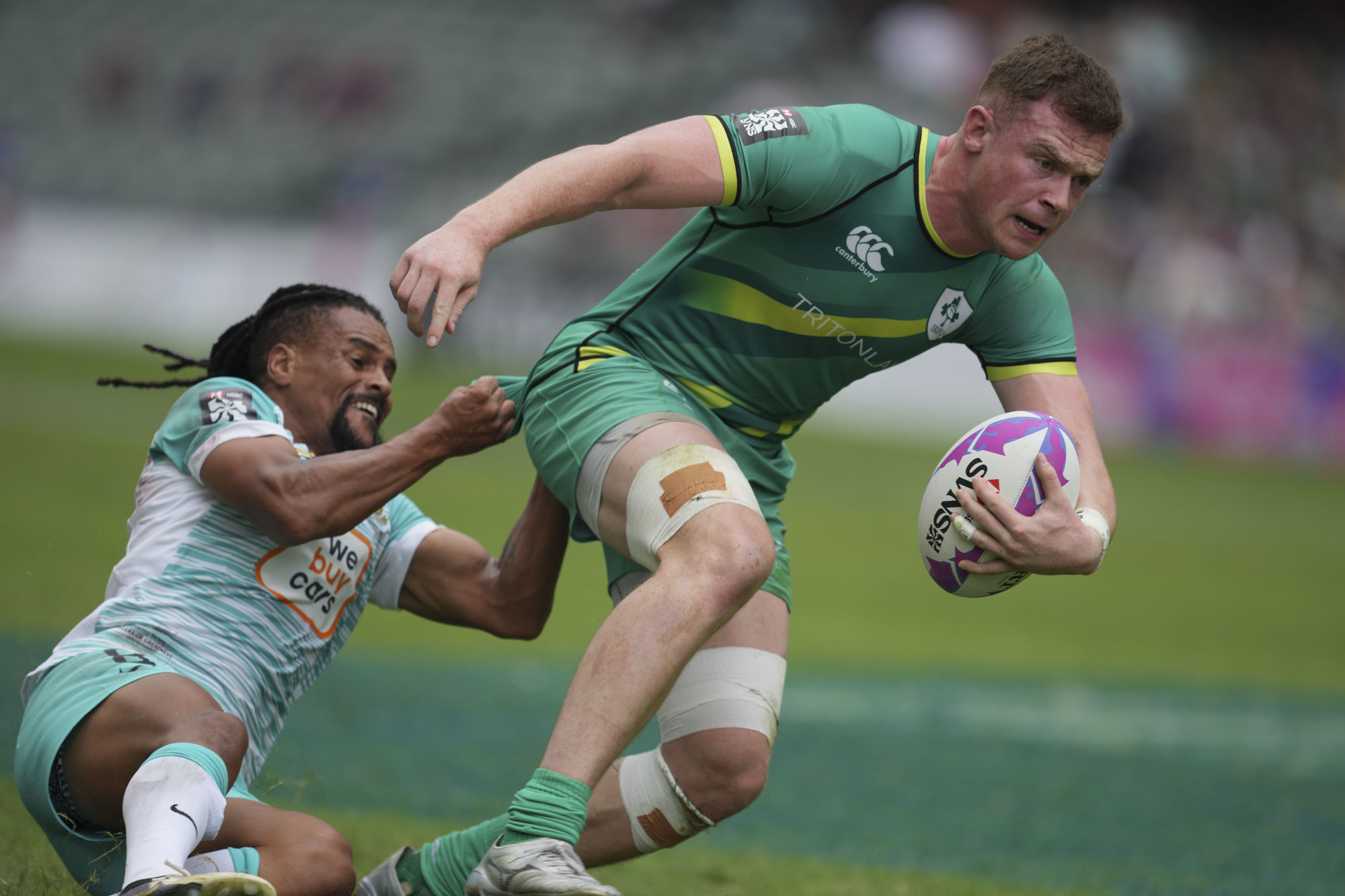Hong Kong Sevens: rising force Ireland say 'our grit comes from ...
Hong Kong Sevens: rising force Ireland say ‘our grit comes from having point to prove’, make hosts rue sliding doors moment

Harry McNulty was still coated in sweat and recovering his breath following Ireland’s defeat by South Africa on Friday, but the captain of rugby sevens’ coming force effortlessly flipped his mind back to the country’s humble beginnings in the sport.
Ireland, who finished day one of the Cathay/HSBC Hong Kong Sevens nicely poised, after beating Samoa in their second match, were late to the sevens party, establishing a full-time programme only in May 2015.
They began in Rugby Europe Division C, playing against Turkey, Montenegro and Belarus.
“I think our grit, desire and passion comes from wanting to show people we can compete with the world’s best teams, after starting in the lowest division in Europe,” McNulty told the Post.
“That drive is something special, we have a history like none of the other world series teams. Ours is a very different journey, and I am really proud of it.”
This season, Ireland, the reigning European champions, sit second in the world series standings. They were World Cup semi-finalists in 2022, and, in the same year boasted the men’s sevens player of the year, Terry Kennedy.
If this city’s rugby fraternity is observing all this through envious eyes, it is with good reason. Five years ago this weekend, Ireland beat Hong Kong in their own backyard to gain core world series status, at the hosts’ expense.
McNulty is grateful to David Nucifora, the outgoing performance director of the Irish Rugby Football Union (IRFU), and Antony Eddy, the former director of rugby sevens, for having the vision to establish a dedicated sevens programme.
“The men’s and women’s teams share a high-performance centre with the 15s teams,” McNulty said. “People from around the world want to work at the facility and for the IRFU, so we are getting amazing staff, while our players consistently want to learn and improve.”
Hong Kong have their own elite training facility at the Hong Kong Sports Institute, and, like Ireland, rugby talent is concentrated in a handful of clubs.
That is where the similarities end. The 10,000 registered rugby players among the city’s 7.3 million population (about one in every 730) is emphatically outweighed by the more than 150,000 of Ireland’s 5.1 million (roughly one in every 34) who play the sport.
More people are recognising the game, and recognising us as players from Ireland’s sevens teamHarry McNultyRugby is woven into the Irish culture, with four provinces accounting for all of the nation’s professional 15s players. Those teams compete in the United Rugby Championship, against sides from Scotland, Wales, South Africa and Italy.
Hong Kong’s top-six 15s teams are semi-professional, and compete only against one another, season in, season out.
Still, the city’s men’s team are fully professional and chasing promotion from the second-tier Challenger Series.
Gavin Mullin, who transferred to Ireland’s sevens team from the 15s code in 2021, identified the imperative of regularly “playing big games, and competing with big teams” for sustained development.
“Sevens is still young, but has been growing in Ireland over the past few years,” Mullin added. “It is becoming more popular with fans, and more youngsters are playing.
“The union is establishing a pathway for guys who are 16 and 17, and, I think, there will be much more to come from Ireland over the next five-to-10 years.”
McNulty has similarly seen a burgeoning enthusiasm for the shorter code, and underlines his point by conjuring an image unlikely to be replicated in Hong Kong.
“I have thrown my neighbours a couple of balls after tournaments, and you see them running around the street with the balls,” he said. “More people are recognising the game, and recognising us as players from Ireland’s sevens team.”
Mullin graduated from Blackrock College, a rich supply line of talent for the national team, and grew up wanting to follow in the footsteps of his dad, ex-Ireland and Lions centre Brendan, who played at three Rugby World Cups as well as at the 1984 Sevens for the Irish Wolfhounds.
“He is as excited about sevens as I am,” Mullin said. “It would not have been a viable career when I was growing up, so it is special to play for Ireland at the top level.”
McNulty said Irish schools were “beginning to churn out talent”, while the IRFU had targeted the club game for players with raw potential.
“I thought the world series was possible from the start,” McNulty said. “But it would have been hard to imagine everything we have achieved: beating every team at least once, reaching finals, and people all round the world following us.
“When it does happen, though, you go, ‘You know what? It is believable’. Within the squad, and the IRFU, we are consistently looking at where we can improve, as players, as people and as a team.”































































